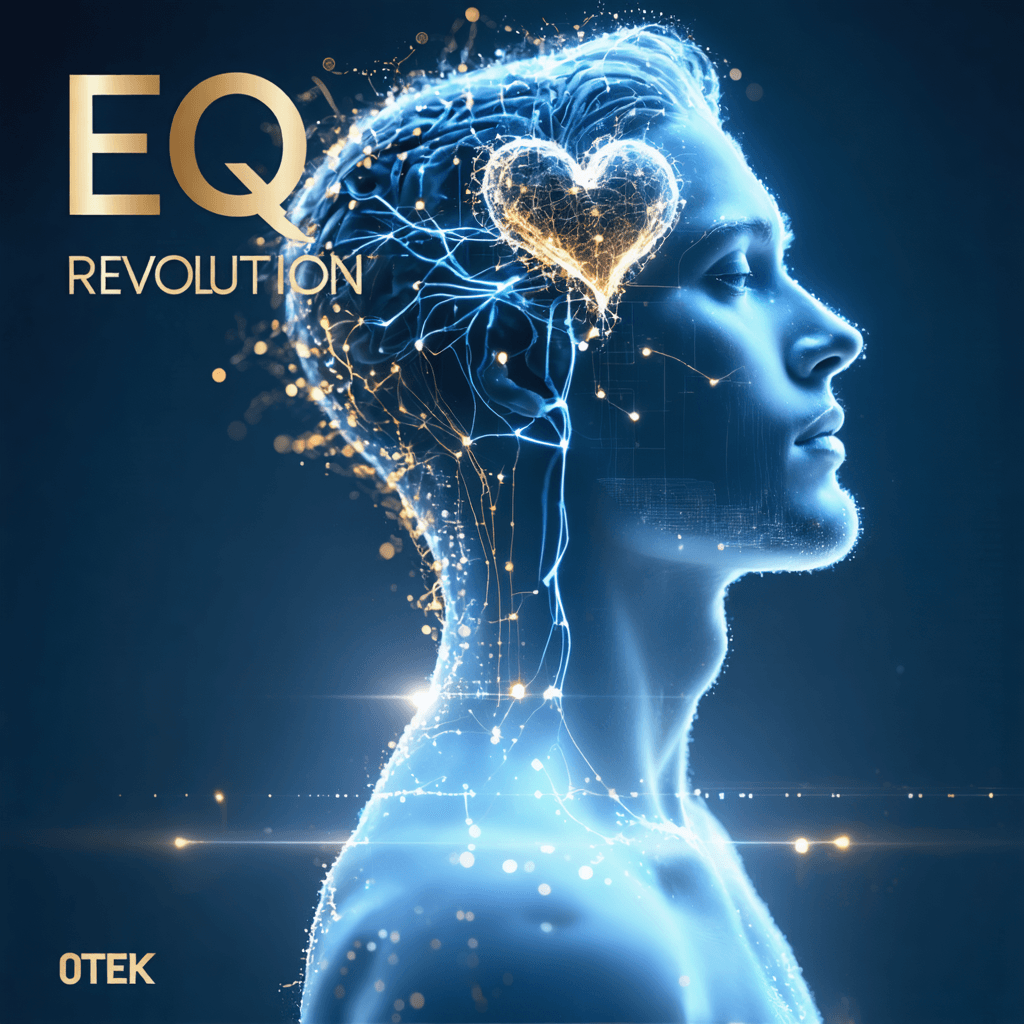The EQ Revolution: How Emotional Intelligence is Reshaping Tomorrow's Workplace Success
In today's rapidly evolving workplace landscape, emotional intelligence (EQ) has emerged as a critical differentiator between good and exceptional leaders. As organizations navigate the complexities of hybrid work environments and multigenerational teams, the ability to understand, manage, and effectively respond to emotions has become more valuable than ever before.
The Rising Importance of EQ in Modern Workplaces
Recent studies have shown that employees with high emotional intelligence are not only more productive but also demonstrate better adaptability in challenging situations. According to a 2024 LinkedIn Workplace Learning Report, 89% of top-performing companies now consider emotional intelligence a core competency for leadership roles. This shift represents a significant departure from the traditional focus on technical skills and IQ-based metrics.
Key Components of Emotional Intelligence
Self-Awareness
At the foundation of emotional intelligence lies self-awareness – the ability to recognize and understand one's own emotions, strengths, and limitations. Leaders who possess strong self-awareness make more balanced decisions and create psychologically safer work environments for their teams.
Social Awareness
Understanding others' emotions and organizational dynamics is crucial in today's interconnected workplace. This includes:
- Reading room dynamics in virtual meetings
- Recognizing non-verbal cues in cross-cultural communications
- Anticipating team members' needs and concerns
Relationship Management
Building and maintaining positive relationships has become increasingly complex in hybrid work settings. Emotional intelligence enables leaders to:
- Foster meaningful connections across digital platforms
- Navigate conflict resolution effectively
- Build trust in virtual and in-person environments
The Impact of EQ on Business Outcomes
Organizations that prioritize emotional intelligence in their workforce development programs have reported remarkable results:
- 67% improvement in team collaboration
- 58% increase in employee engagement
- 41% reduction in workplace conflicts
- 35% enhancement in customer satisfaction scores
Developing EQ in the Digital Age
Technology-Enhanced EQ Training
Modern EQ development programs are leveraging cutting-edge technologies to provide immersive learning experiences. Virtual reality simulations and AI-powered feedback systems are helping professionals practice emotional intelligence skills in safe, controlled environments.
Practical Strategies for EQ Enhancement
Active Listening Exercises
- Practice focused attention during virtual meetings
- Implement "digital-free" conversation times
- Engage in regular feedback sessions
Emotional Awareness Tools
- Use emotion-tracking apps
- Maintain an emotional journal
- Participate in mindfulness sessions
Conflict Resolution Training
- Role-play difficult conversations
- Study case studies of successful conflict management
- Learn de-escalation techniques
The Future of EQ in the Workplace
As we look toward the future, emotional intelligence will continue to gain prominence in workplace success metrics. Organizations are increasingly incorporating EQ assessments in their hiring processes and professional development programs. The integration of artificial intelligence and machine learning in workplace tools will require even greater emotional intelligence to maintain human connections and effective collaboration.
Emerging Trends in EQ Development
- Personalized EQ development paths based on individual needs
- Integration of neuroscience-based approaches
- Cross-cultural EQ training programs
- Real-time EQ coaching through AI-powered platforms
Measuring EQ Impact
Progressive organizations are developing sophisticated metrics to measure the return on investment in EQ development:
- Performance evaluation systems that include EQ components
- Customer satisfaction metrics linked to employee EQ levels
- Team effectiveness scores
- Leadership capability assessments
Creating an EQ-Driven Culture
To foster an environment where emotional intelligence thrives:
Lead by Example
- Demonstrate vulnerability and authenticity
- Share personal growth experiences
- Celebrate emotional intelligence wins
Implement Regular Training
- Provide access to EQ development resources
- Organize workshops and seminars
- Encourage peer-to-peer learning
Recognize and Reward
- Acknowledge demonstrations of high EQ
- Include EQ metrics in performance reviews
- Create incentives for emotional intelligence development
The Competitive Advantage of EQ
In an era where technical skills can be automated or outsourced, emotional intelligence remains uniquely human and increasingly valuable. Organizations that invest in developing their workforce's EQ capabilities position themselves for sustained success in an increasingly complex business environment.
Making the Transition
The journey to becoming an emotionally intelligent organization requires commitment, resources, and time. However, the benefits – including improved employee satisfaction, better customer relationships, and enhanced business performance – make it a worthwhile investment.
Ready to enhance your emotional intelligence and transform your workplace success? Explore our comprehensive range of EQ development courses and resources at 01TEK. Our expert-led programs are designed to help you and your team master the essential skills needed for tomorrow's workplace. Visit 01TEK's Learning Hub today to begin your EQ revolution journey.
Transform your potential into performance with 01TEK – Where emotional intelligence meets excellence.
Example is not the main thing in influencing other people; it’s the only thing
Abraham Lincoln



